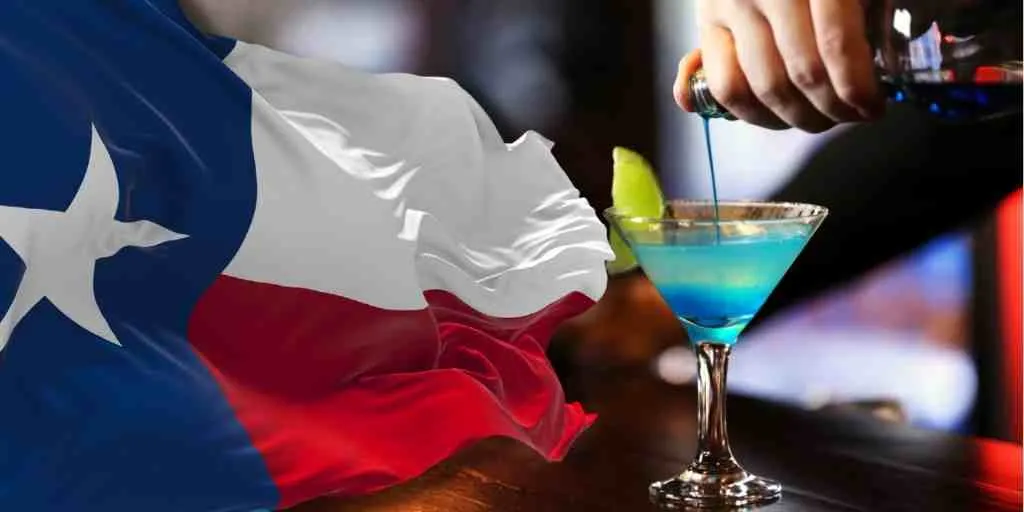Continuing our series on how to be a bartender worldwide, this week we’ve got the requirements for England and U.K. If you missed them, here are for Australia, Canada, the U.K., and New Zealand.
Bartending. You’ll be dealing with a broad range of clientele, from a lonely businessman who wants to tell you his life story to rowdy bachelor parties, to a gathering of power-drinking truckers who threaten you when you try to close the bar at the end of the night. This will need strong interpersonal skills, a way with words, and some formal nationwide license to prove that you can deal with any situation, right?
Wrong.
As with every job or career nowadays, bartending is slowly becoming more regulated – employers, often due to worries over insurance, are increasingly likely to require some mandatory bartending school training or state-provided permit from you even before you set foot behind their bar. But the notion that you must have special training, a state certificate, or some form of bartender’s license before you can work the stick is incorrect.
You can find online training and certification from companies like 360Training that have been in business for years.
The truth is, there is no nationally-recognised bartender license in the U.S. It does not exist. What do exist are various state-sponsored or suggested server programs designed to ensure you receive the minimum training required to be aware of and compliant with the responsible serving of alcohol. Are they mandatory for you to start work? It varies from state to state, county to county and sometimes city to city. Occasionally, there may be no state-level compulsory training, but some counties or cities within that state may require mandatory certification.
So, let’s look at some of the states around the U.S. and the bartending licensing requirements.
Alaska
Alaska’s Alcoholic Beverage Control Board has deemed server training mandatory, and legislation demands all servers of alcoholic beverages, their managers/supervisors and even staff who provide door security at a licensed establishment must receive compulsory alcohol server training within thirty days of employment. Certification is renewable every three years.
There are several state-approved courses which run for three to four hours. Also, the Alaska Cabaret, Hotel, Restaurant and Retailers Association (CHARR) offers T.A.P. and ServSafe training for anybody seeking to enter the hospitality business.
We’ve written a guide to bartending in Alaska here.
Arkansas
To legally serve alcohol in Arkansas, a bartender needs to complete training approved by the Arkansas Alcoholic Beverage Control Board (ABC).
The minimum age to serve alcohol in Arkansas is 19 and 21 to bartend. For more information on how to get started, we’ve written a guide to bartending in Arkansas here.
Arizona
The southwestern state of Arizona has Title 4 Training, which is compulsory for all owners, agents and managers working with or around alcohol in either on- or off-premises licensed establishments. For these supervisors and owners, the training is two-tier.
We’ve written a more detailed guide to bartending in Arizona here.
First, they must achieve a Basic Certificate of Completion in relation to the Grand Canyon State’s liquor laws, then a Management Title 4 Training Course. It is not mandatory for junior employees to have the Basic Certificate of Completion, so bartenders and servers are not required to attend any course.
However, the state suggests attending one of the training days – run by approved private businesses and training schools – so that serving staff are fully aware of their responsibilities.
Sometimes, even individual establishments will want you to have TIPS (Training for Intervention ProcedureS) certificate, while the bar next door may not. What they will want you to have, however, is experience, the right attitude, and the skills required to juggle ten orders on a busy Saturday evening. No amount of responsible server training is going to give you those.
Alabama
Alabama is another state that does not require any liquor certification to serve or bartend. The only requirements are that you are at least 19 to serve or 21 to step behind the bar.
However, being a state with Dram Shop Liability Laws, many potential employers will require staff to have Responsible Vendor Program training.
We’ve written a more detailed guide to bartending in Alabama here.
California
Until 2021, no compulsory training was required; however, as of July 2022, all servers must have RBS certification.
If you want more information, we’ve written a complete guide to bartending in California here.
The Department of Alcoholic Beverage Control runs training packages designed to educate and inform people working in the trade. Their LEAD (Licensee Education on Alcohol and Drugs) Program is a free, voluntary prevention and education course that lasts just four hours (plus an exam) and provides extensive information on the safe serving of alcohol, checking I.D., preventing and detecting illegal activity and much more.
Meanwhile, their Responsible Beverage Service (RBS) Training Provider program offers budding and current serving staff the opportunity to learn about the state’s licensing laws and their responsibilities while serving drinks.
Connecticut
Although the Connecticut Liquor Commission does not mandate alcohol server training, acquiring the expertise provided in our course can be advantageous for servers and staff. Completing our training ensures that your team comprehends responsible alcohol sales and service while fostering a secure, well-regulated environment. It is worth noting that certain local governments may impose server training requirements.
If you want more information, we’ve written a full guide to bartending in Connecticut here.
Deleware
The State of Deleware requires all servers and staff to undergo Responsible Server Training. If you have TIPS certification, this is also valid. State-approved courses are available online and in-person and consist of training and a multi-choice test. On completion, you’ll be issued a card proving you’ve completed training, valid for four years.
If you want more information, we’ve written a full guide to bartending in Deleware here.
Idaho
Idaho is another state that does not have state-level alcohol training requirements, but cities like Boise and Sun Valley require that staff get responsible server training from an approved trainer.
If you want more information, we’ve written a full guide to bartending in Idaho here.
Florida
The Sunshine State has no legal requirement for you to become ‘properly trained’ or obtain a bartending school degree or any license. However, it might be advisable for prospective pint-pullers to undergo training on a ‘responsible vendor program’, and numerous bar schools offer this two to three-hour input. TIPS is also valid in the state.
Remember that you must be eighteen or older to serve alcohol, but many establishments prefer you to be twenty-one or above before considering hiring you.
If you want more information, we’ve written a full guide to bartending in Florida here.
Georgia
As with Wyoming, in the southeastern state of Georgia, server training is not mandatory, but some cities or counties may require you to be certified.
If you want more information, we’ve written a full guide to bartending in Georgia here and a list of bartending schools in Atlanta, the state’s capital.
The Alcohol & Tobacco Division of the Georgia Department of Revenue is the governing body that regulates all sales – either on- or off-premises – of alcohol in the state. They advise all people working in the hospitality biz to undergo a Responsible Serving Course. Many state-approved providers run these courses, which cost around $10, and certificates must be renewed every three years. The minimum age to serve alcohol in the Peach State is eighteen.
Hawaii

The sale and service of alcohol in Hawaii are managed at the county level and differ slightly from island to island, but they are a little more strict than in most other U.S. states. Mandatory training is required by all staff or managers who oversee staff and is usually renewed every four or five years.
We’ve written a more detailed guide to bartending in Hawaii here.
The Honolulu Liquor Commission, for example, offers Server-Training for managers, assistant managers and bartenders, where prospective employees must undergo Server-Training and subsequently pass a final examination to obtain their ‘Liquor Card’ (formally known as the Certificate of Registration).
There are five types (all colour-coded: red, green, purple, yellow, and finally blue) of liquor cards, with the red an entry point for minors who are working in any capacity at a licensed premises (sixteen to twenty-year-olds) up to blue which is for managers and assistant managers who must have server training and be at least twenty-one years of age. The certificates last four years.
Meanwhile, the Department of Liquor Control in Kauai runs a similar system but with either a red (off-premises) or blue (on-premises) ‘manager card’, which supervisors and managers must have when running a licensed establishment and supervising staff. Full details of the requisite training and card systems can be found on the county websites for Hawaii, Honolulu, Kauai and Maui.
Illinois
Home to Chicago and two of the top universities in the US, Illinois is a great place to start your bartending career.
As of 2018, you must hold a Beverage Alcohol Sellers and Servers Education and Training (BASSET) certification to serve alcohol.
If you want more information, we’ve written a full guide to bartending in Illinois here.
Kansas
Kansas is another state with no certification to become a bartender. The only requirements are to be 21 and have a clean criminal history.
If you want more information, we’ve written a full guide to bartending in Kansas here.
Kentucky
The Kentucky Department of Alcoholic Beverage Control runs the STAR (Server Training in Alcohol Regulations) package, available either as classroom input ($35 per person) or online self-teaching ($36.27). The former lasts four hours and is valid for three years, while online, it lasts three hours (the validity period is the same).
STAR training is not compulsory; however, the authorities see it as an educational tool specific to the state’s alcohol laws. While obligatory, they greatly emphasise potential bartenders and servers signing up. Several private companies in Kentucky also run R.B.S. (Responsible Beverage Server) training, a variation on the STAR input.
If you want more information, we’ve written a full guide to bartending in Kentucky here.
Louisiana
Suppose you’re considering a career as a bartender in Louisiana. In that case, you must obtain a bartender license, also known as a Responsible Vendor Server Card, which is mandatory to serve alcohol in the state. The Responsible Vendor Training course is available online or in person, and after completing the course successfully, you will receive the RV permit, valid for four years.
Larger cities like New Orleans, Baton Rouge, and Lafayette offer more job opportunities due to the higher demand for nightlife and entertainment. The average base salary for a bartender in Louisiana is $12.2 or $26,000 per year, but wages and tips vary depending on the establishment where you work.
If you want more information, we’ve written a full guide to bartending in Louisiana here.
Maine
Maine has no compulsory training, but the state’s Bureau of Alcoholic Beverages and Lottery Operations suggests completing some responsible server training and has a list of approved training schools on its website. These include the ubiquitous TIPS and B.A.S.I.C. (Bureau Alcohol Seller/Server Informational Course), Serve Safe and Reserving. Attending these courses before working with or around alcohol is entirely voluntary.
If you want more information, we’ve written a full guide to bartending in Maine here.
Maryland
Maryland has no compulsory training at the state level. The minimum age to start serving beer is 18; however, to become a bartender, you’ll have to be 21. Maryland’s statutes allow different parts of the state to enact more or less restrictive laws around selling liquor, so check with the city you plan to work in for any local requirements.
We’ve written a more detailed guide to bartending in Maryland here.
Massachusetts

While there are no statewide requirements for alcohol server training in Massachusetts, many establishments require TIPS certification for their employees. This certification teaches responsible alcohol service and can benefit bartenders by increasing job opportunities and providing legal protection for businesses. TIPS training can be completed online, and while not required by the state, it may be necessary for some counties or towns. Like many states, you can serve alcohol at 18 but must be 21 to bartend.
We’ve written a full guide to bartending in Massachusetts here.
Michigan
If you’re interested in becoming a bartender in Michigan, you must be at least 18 years old. Michigan requires all bartenders to have taken approved alcohol server/seller training, which can be completed through several approved programs. This training will give you the certification you need to understand responsible alcohol service.
Popular cities for bartenders include Ann Arbor, Troy, and Traverse City. Remember that while the average base salary for a bartender in Michigan is around $24,500 per year, much of your income will come from tips.
We’ve written a full guide to bartending in Michigan here.
Minnesota
Although no state regulations mandate a server or bartender to be licensed to sell alcohol, you must be 18 to work in a bar, and some employers may require such courses.
Bartenders in Minnesota can earn an average base salary of $13.37 per hour or $29,000 per year, with the potential to earn higher wages and tips depending on their skill level and the type of establishment they work in.
We’ve written a full guide to bartending in Minnesota here.
Mississippi
If you are interested in becoming a bartender in Mississippi, you may be wondering what qualifications or licenses you need. Although there are no formal requirements, many employers prefer to hire bartenders who have completed a bartending course or training program.
We’ve written a complete guide to bartending in Mississippi here.
Missouri
Are you looking to become a bartender in the Show Me State? While there are no specific certification requirements, the State of Missouri Alcohol Responsibility Training (SMART) Online Server Training Program is highly recommended.
Bartenders in Missouri must also be knowledgeable about state liquor laws, and competition for positions can be fierce in larger cities like St. Louis and Kansas City.
We’ve written a full guide to bartending in Missouri here.
Montana
Becoming a bartender in Montana requires passing a state-approved training course within 60 days of being hired. Certification needs to be renewed every three years.
We’ve written a complete guide to bartending in Montana here.
Nebraska
Nebraska is another state that has no State-wide laws about what training or certification bartenders must take before starting work. As always, many establishments require staff to take a responsible server training course approved by the Nebraska Liquor Control Commission for liability reasons.
We’ve written a guide to bartending in Nebraska here.
Nevada
Nevada requires all serving staff to have taken state-approved alcohol server training in some capacity from a list of approved training companies.
Like other states, different jurisdictions may have different training requirements. For instance, Los Vegas also requires servers to have food-handling certification.
We’ve written a full guide to bartending in Nevada here.
New Hampshire
New Hampshire has no legal requirements to become a bartender other than being 18 years old at least. However, many bars and restaurants require staff to take responsible server training.
We’ve written a complete guide to bartending requirements for New Hampshire here.
New Jersey
In New Jersey, there is no legal requirement for a certificate to work as a bartender or serve alcohol in New Jersey, but one must be at least 18 years old and have a clean criminal record.
The Division of Alcoholic Beverage Control regulates the alcoholic beverage industry in New Jersey. Several different types of liquor licenses are available in the state, each with its own set of regulations and requirements.
The law does not require TIPS certification, but many establishments may require an alcohol server to obtain it. Obtaining TIPS certification can improve job prospects and demonstrate commitment to responsible alcohol service.
We’ve written a full guide to bartending in New Jersey here.
New Mexico

New Mexico has a mandatory certification program – without their Alcohol Server Permit, you will not work anywhere in the state. Their Regulation and Licensing Department advises, ‘Everyone who sells or serves alcohol in New Mexico must obtain a permit by taking a New Mexico-approved Alcohol Server Education class.’ TIPS is not recognised in the Land of Enchantment; you must have the state-approved certification, which is offered as a training package by the Alcohol and Gaming Division at their Santa Fe H.Q. or by official partners in the private sector (full details are on the New Mexico state website).
We’ve written a more detailed guide to bartending in New Mexico here.
New York
No mandatory training is required to get behind the stick in the Big Apple or the wider state, but their A.T.A.P. (Alcohol Training and Awareness) program is strongly recommended. A.T.A.P. is essentially New York’s version of TIPS, with a few tweaks.
Once again, certified outside ‘providers’ run the training classes and are listed on the New York State Liquor Authority’s Division of Alcoholic Beverage Control website. You also have to be eighteen or older to work with alcohol and twenty-one to drink it.
We’ve written a more detailed guide to bartending in New York state here.
North Carolina
North Carolina is another state with no formal requirements to work as a bartender.
We’ve written a more detailed guide to bartending in North Carolina here.
North Dakota
North Dakota does not have a state-wide requirement for server training, but several cities and counties require bartenders and servers to receive training. However, due to different levels of enforcement, it’s best to check with your employer to see what certification is required.
We’ve written a more detailed guide to bartending in North Dakota here.
Ohio
Like many states, Ohio has no special license for bartenders serving alcohol. This means anyone who meets the legal age requirements to serve alcohol is eligible for employment as a bartender.
We’ve written a more detailed guide to bartending in Ohio here.
Oklahoma
In Oklahoma, all employees serving, mixing, or selling alcoholic beverages must have an employee license obtained through an ABLE-approved training program. Bussers and hosts are exempt from this requirement. To work as a bartender, you must be at least 21 years old and have no felony convictions. Type I establishments require everyone to be at least 21 years old and have a license, while Type II establishments allow those under 21 to enter but require employees involved in service or sales to be at least 18 years old and have a license. Regardless of the establishment type, alcohol server training is required.
We’ve written a more detailed guide to bartending in Oklahoma here.
Oregon
In Oregon, bartenders and other staff need an Alcohol Service Permit from the Oregon Liquor and Cannabis Commission (OLCC) which requires passing an approved alcohol server education program. Applicants must be at least 18 years of age, and those aged between 18 and 20 can obtain a minor service permit. The OLCC may reject an Alcohol Service Permit Application for certain reasons, including a prior conviction for a felony drug offence or a history of driving under the influence of intoxicants. Additionally, bartenders can make an average base salary of $27,000 per year, depending on where and when they work in Oregon.
We’ve written a more detailed guide to bartending in Oregon here.
South Carolina
While obtaining a bartending license to work as a bartender in South Carolina is not mandatory, employers highly recommend it. Completing a recognized training program is considered a “mitigating circumstance” if an employee is found to have violated liquor laws.
Bartenders in South Carolina must be 21 years old, but seeing staff can start working at 18. The job market for bartenders in South Carolina is projected to grow higher than the national average, with several excellent cities offering job opportunities, such as Charleston, Greenville, Myrtle Beach, Columbia, and Hilton Head Island.
We’ve written a more detailed guide to bartending in South Carolina here.
Texas

When heading south to the Lone Star State, you will find no mandatory training to work for bars and clubs. However, T.A.B.C. (Texas Alcoholic Beverage Commission) certification can often seal the deal if you have received it before going for an interview.
If you want more information, we’ve written a full guide to bartending in Texas here.
Numerous state-approved providers run the training – either in classrooms or online – that can be found on the T.A.B.C. website, and it is here that you will learn just how much importance employers place on the people being certified before they hire.
The course covers the laws related to selling or serving alcoholic beverages to minors, intoxicated persons, and non-members of a private club. It can cost as little as $10 and last just a couple of hours (online, in particular, frequently consists of four or five ‘chapters’ and then a final exam). Learn2Serve- Get Texas T.A.B.C. Alcohol Certification Only $10.99
Utah
To obtain a Utah bartending license, which is necessary to serve alcoholic beverages in Utah, you must be at least 21 years old and complete a Utah Department of Alcoholic Beverage Control-approved alcohol training course. This license should be obtained within 30 days of starting your employment and renewed every three years.
We’ve written a more detailed guide to bartending in Utah here.
Virginia
Virginia has no compulsory requirement for you to work behind the bar. The Virginia Department of Alcoholic Beverage Control (A.B.C.) does, however, suggest servers take the voluntary training, titled ‘Responsible Sellers and Servers’ (RSS). The A.B.C. Department organises numerous annual training events and meetings designed to educate and inform the public and potential servers of alcohol, including the RSS, while private schools and businesses also offer a package which costs around $10 and lasts for three hours of input; re-certification is required every two years. For managers and supervisors, MART offers an enhanced – yet still voluntary version of the Sellers and Servers program (Managers’ Alcohol Responsibility Training).
Pennsylvania
Thinking of starting bartending in Pennsylvania? Whether moving to Philadelphia or one of the other smaller cities in the state, there’s a lot to like about it, and the state has been voted the 14th best place to live in America.
The Keystone State is another state with mandatory server training, and you must complete the RAMP server/seller training within six months of starting a job.
We’ve written a more detailed guide to bartending in Pennsylvania here.
Rhode Island
To work as a bartender in Rhode Island, you must be 18 and complete one of the state-approved alcohol server training courses with a 75% or better score. Certification lasts three years and must be renewed afterwards.
We’ve written a more detailed guide to bartending in Rhode Island here.
South Dakota
South Dakota has no requirement for a bartending certification. You must be at least 18 to serve drinks, but 21 to make drinks without supervision.
We’ve written a more detailed guide to bartending in South Dakota here.
Tennessee
Tennessee requires anyone who serves liquor in a licensed establishment to obtain a server permit and complete responsible server training from a list of Tennessee Alcoholic Beverage Commission (TABC) approved trainers. The permit lasts for five years and must be renewed.
We’ve written a guide to bartending in Tennessee here.
Vermont
At 18, Vermont has one of the lowest ages you can start mixing drinks. You can even start selling liquor at 16 in some parts of the state. To become a bartender, you do need to complete a state-approved alcohol serving course if you’re going to be serving or making drinks.
We’ve written a guide to bartending in Vermont here.
Virginia
In Virginia, you can start bartending at 21 without getting a certification. But despite being a non-Dram Shop state, most licensed establishments will require you to have some responsible server training. The Virginia ABC maintains a list of approved trainers on their website.
We’ve written a guide to bartending in Virginia here.
Washington

The State of Washington has mandatory requirements if you want to work around alcohol in The Evergreen State. Their MAST (Mandatory Alcohol Server Training) Permit is a must-have. It consists of a package designed to ensure you are fully compliant with local laws and guidance covering the serving, mixture, sale, or supervision of the sale of alcohol for on-premises consumption at a liquor-licensed establishment.
The state Liquor Control Board does not run courses; instead, it provides a list of approved providers who deliver the course – either in a class or online – and the final exam, which must be passed to obtain the permit.
The permit itself is divided into Class 13 and Class 12 versions. The former is provided to people aged between eighteen and twenty, and the latter is given to successful twenty-one or over candidates. The Class 13 permit allows you to take alcohol orders, carry alcohol to the customer, and pour it into a customer’s glass at the customer’s table. Meanwhile, the Class 12 permit (which you can upgrade to once you turn twenty-one) allows you to draw alcohol from the tap and mix drinks, perform duties included in the Class 13 permit, manage the establishment, and conduct alcohol tastings at an approved location with a tasting endorsement.
We’ve written a more detailed guide to bartending in Washington here.
West Virginia
West Virginia has no bartending certification requirement, but you should take a responsible server training course before starting work. You can start serving drinks at 18, but you must be 21 before you can start bartending.
We’ve written a more detailed guide to bartending in West Virginia here.
Wisconsin
If you want to be a bartender in Wisconsin, you need to get an operator’s license to serve alcohol.
To get this license, you need to be 18 years old or older, have a clean criminal history, and complete an approved responsible beverage server training program. The process may take some time, so getting your license well before you start interviewing for jobs is best.
You’ll make at least $7.25 per hour plus tips, which can vary depending on the establishment and shift, but bartenders in Wisconsin typically make an average of $150 per shift in tips.
We’ve written a more detailed guide to bartending in Wisconsin here.
Wyoming
To bartend in Wyoming, you must be 21 and have completed one of the state-approved server training courses.
The Wyoming Department of Revenue Liquor Division runs a Responsible Serving of Alcohol Course program, but several independent businesses are also approved to provide the input.
We’ve written a more detailed guide to bartending in Wyoming here.
Age To Serve and Bartend

Many states have different ages for people who serve or sell alcohol and those who mix the drinks (bartenders). See this link for more information on states’ requirements.
Licence Requirement By State
You can find online training and certification from companies like 360Training. Check your State for any necessary certifications.
| State | Certification Required |
|---|---|
| Alaska | Yes, pass state-approved server training such as TIPS or CHARR. |
| Arizona | None |
| Alabama | None |
| Arkansas | One of the ABC-approved Arkansas Alcoholic Beverage Control Board Courses |
| California | RBS (Responsible Beverage Server) (as of 2022) |
| Connecticut | None |
| Delaware | Must complete an approved Responsible Server Training course. |
| Georgia | None |
| Idaho | None at the state level, but most major cities seem to require a Responsible Server Training course. |
| Illinois | BASSET (Beverage Alcohol Sellers and Servers Education and Training) Certification |
| Kansas | None |
| Kentucky | None, but STAR or other Responsible Vendor Training is recommended |
| Louisiana | Need a Bar Card from an approved Responsible Vendor Training provider. |
| Maine | None |
| Maryland | None |
| Massachusetts | None, but TIPS is recommended. |
| Michigan | One of the MLCC-approved Michigan Alcohol Seller-Server Courses |
| Minnesota | None, but TIPS is recommended. |
| Mississippi | None, but some Responsible Alcohol Server Certification is recommended |
| Missouri | None, but server training like SMART is recommended |
| Montana | Yes, pass state-approved server training from an approved course provider. |
| Nebraska | None |
| Nevada | Approved Alcohol Server training, such as a TAM Card or Alcohol Awareness Card |
| New Hampshire | None |
| New Jersey | None, but TIPS is recommended. |
| New Mexico | Alcohol Server Permit from an approved trainer. |
| New York | None, but TIPS is recommended. |
| North Carolina | None |
| North Dakota | None at the state level. Some cities have local certification requirements. |
| Ohio | None |
| Oklahoma | Oklahoma Alcoholic Beverage Laws Enforcement (ABLE) Employee License |
| Oregon | Alcohol Service Permit from Oregon Liquor and Cannabis Commission |
| Pennsylvania | RAMP (Responsible Alcohol Management Program) |
| Rhode Island | Approved Server Training |
| South Carolina | None |
| South Dakota | None |
| Tennessee | Complete a state-approved responsible alcohol service training |
| Texas | TABC (Texas Alcoholic Beverage Commission) Certification |
| Utah | On-Premise Beverage Server Training |
| Vermont | Compete an approved resonsivbe server training course |
| Virginia | None |
| Washington | MAST permit and Food Worker Card |
| West Virginia | None |
| Wisconsin | Obtain an Operator’s License from an approved course provider. |
| Wyoming | Complete server state-approved training |
Note: This information is current as of 2022/2023.




